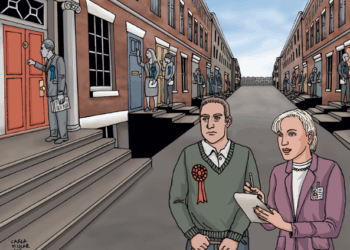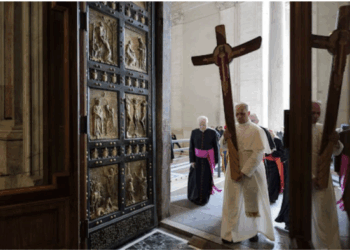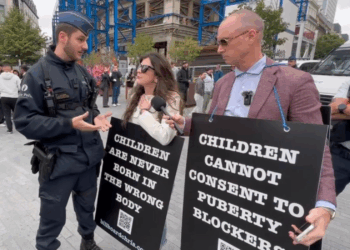My hometown of Flint Hill, Virginia, has been blessed with forests that make it ideal for a rustic lifestyle, which my wife and I enjoy. On walks with my dogs, I marvel at the poplar, red maple, oak, and pine trees — all second growth in this area that was once cleared farmland.
The wild forests are slowly returning, and with them the animals and ecosystems they once supported. But it can take hundreds of years to restore what was lost. Even so, Virginia’s recovering forests attract millions of outdoor enthusiasts each year who hike along the Appalachian Trail not far from my home. The nearby Shenandoah River is also a prime spot for fishing, canoeing, and kayaking. Nature is resilient — given time and a little support by us.
When I directed the movie Gods and Generals, I chose to film it in Culpeper County, Virginia, for its beautiful scenery and authenticity to the Civil War period. While beauty can be captured on film, it is far better to be enjoyed in real life, as I learned as a director.
I love this area, for its history and natural beauty. But both are currently under attack. A couple months ago, the Department of Agriculture announced its intent to repeal a policy known as the “Roadless Rule.” This policy protects over 300,000 acres of some of Virginia’s most pristine and ancient forests from roadbuilding, logging, and other forms of development on federal forests within the Commonwealth.
I have been a vocal supporter of President Trump for more than a decade. However, this move by some bureaucrats within the USDA should be reconsidered. Our beautiful national forests need protection, not excavation.
Repealing the Roadless Rule would be disastrous for Virginia — risking the heritage of our national forests, negatively impacting local economies that depend on outdoor tourism, and increasing pollution in our rivers. The Roadless Rule protects headwaters of crucial rivers like The James, which provides drinking water for 2.7 million Virginians and is essential for boating and fishing. Efforts to allow forests to be paved over by roads will lead to runoff and erosion, allowing sediment to fill and destroy our streams and rivers.
One of USDA’s stated reasons for the repeal is to supposedly improve firefighting efficiency and prevent wildfires. However, studies have shown that roadless areas are safer from wildfires because they are inherently more backcountry — where there is less human activity.
In western states that are more prone to wildfires, repealing the Roadless Rule will create new fire management requirements, which will add additional bureaucracy to state and local governments. If there is anything small towns do not need, it is more red tape when trying to maintain public safety and save lives.
This issue came up in 2020 and I raised the alarm then for what would happen to our nation’s largest national forest — the Tongass in Alaska — if the Roadless Rule was repealed. Eight-hundred-year-old Sitka spruce trees, one of the world’s most productive commercial salmon runs, habitat for grizzlies, and the ultimate symbol of American freedom, the bald eagle, would have all been destroyed. I also pointed out that repeal made no economic sense, as subsidizing road building and development in the Tongass and other national forests costs the taxpayer hundreds of millions of dollars.
Once again, this issue has come back around, except now it would impact forests in 36 total states, including much closer to home for me. Once again, it would waste our money, destroy our heritage, pollute our rivers and drinking water, and cripple our thriving outdoor recreation economy.
Small towns do not need added bureaucracy. Leave the Roadless Rule intact.
Ron Maxwell is the award-winning director of the films Gettysburg and Gods and Generals.








![Donald Trump Slams Chicago Leaders After Train Attack Leaves Woman Critically Burned [WATCH]](https://www.right2024.com/wp-content/uploads/2025/11/Trump-Torches-Powell-at-Investment-Forum-Presses-Scott-Bessent-to-350x250.jpg)

![Two Dead, 14 Injured After Gunfire Erupts Following College Football Game in Alabama [WATCH]](https://www.right2024.com/wp-content/uploads/2025/10/Two-Dead-14-Injured-After-Gunfire-Erupts-Following-College-Football-350x250.jpg)





